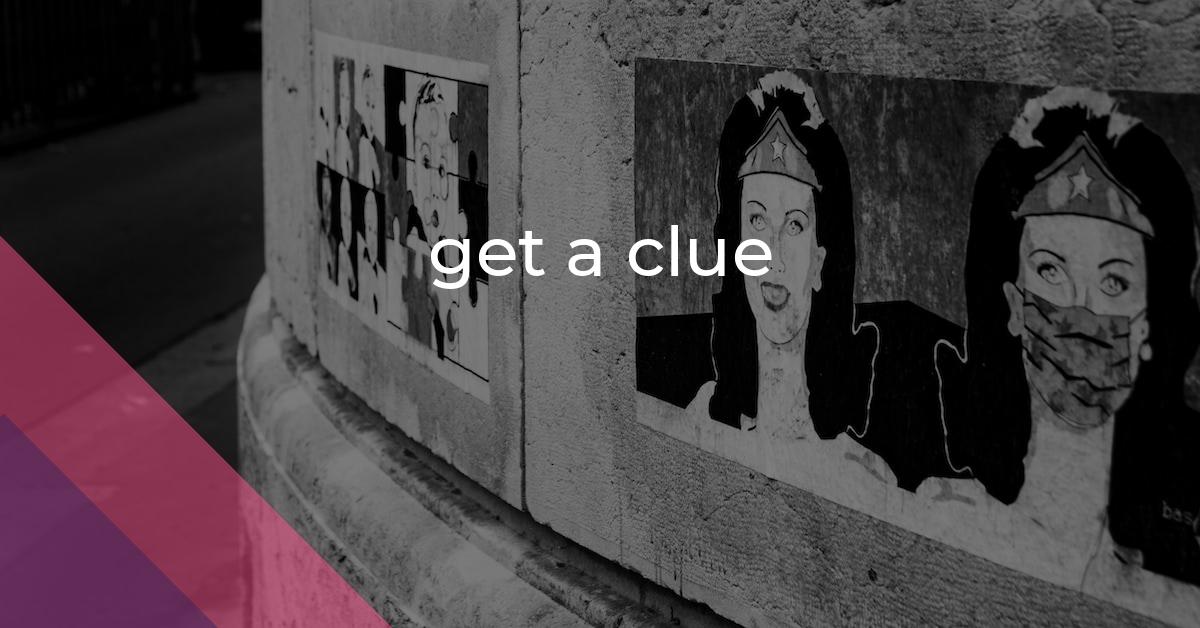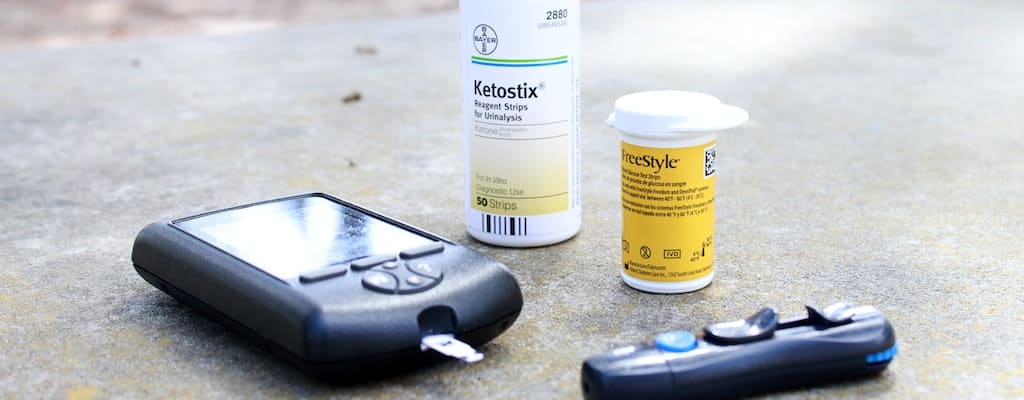get a clue: Idiom Meaning and Origin
What does ‘get a clue’ mean?
The idiom "get a clue" means to understand or realize something that is obvious or easily understood by others. It implies that the person lacking awareness should pay attention and become more knowledgeable about the situation.

Idiom Explorer
The idiom "take the hint" means to understand an indirect or subtle message. It implies recognizing an unvoiced suggestion or signal and acting accordingly.
The idiom "know what is what" means to have a clear understanding or knowledge of a situation or topic. It implies being well-informed and aware of the essential facts or details, allowing one to make informed decisions or judgments.
The idiom "guess what" is used to introduce or emphasize surprising or unexpected information or news.
The idiom "give someone to understand" means to make someone believe or think that something is true, usually by implying or suggesting it indirectly.
The idiom "give heed" means to pay attention or listen carefully to something or someone. It emphasizes the importance of being attentive and taking information seriously.
The idiom "get with the program" means to understand and conform to the expectations or requirements of a particular situation or group. It implies that someone needs to become more aware, engaged, or up to date with what is happening around them.
The idiom "get wind of" means to hear or learn about something, often through rumors or indirect sources. It implies becoming aware of information that was previously unknown or secret.
The idiom "get to grips with" means to become familiar with or understand something difficult or challenging. It implies taking control and actively engaging with the subject matter in order to overcome any obstacles or difficulties.
Untangling Mysteries
The idiom "get a clue" is a common expression in English that is used to convey the idea of someone needing to gain understanding or awareness about a situation. While its exact origin is unclear, the phrase has been used in American popular culture and idiomatic speech for several decades. The idiom is often used in a playful or sarcastic manner, highlighting the speaker's frustration or impatience with the person being addressed.
The word "clue" in this idiom refers to a piece of information or evidence that helps solve a mystery or puzzle. In the context of the idiom, someone who "gets a clue" is seen as finally understanding or realizing something that was previously unclear to them. The phrase can be used in various situations, such as when someone is having difficulty understanding a simple concept, failing to grasp a social cue, or lacking awareness of a larger issue.
Similar expressions to "get a clue" include idioms such as "get the point," "take the hint," "catch on," and "get the drift." These idioms all convey the idea of someone gaining understanding or awareness about something. "Get the point" implies that someone finally understands the main idea or message being communicated. "Take the hint" suggests that someone finally understands an indirect suggestion or signal. "Catch on" implies that someone finally understands a concept or idea that they were previously unaware of. "Get the drift" conveys the idea of someone finally understanding the underlying meaning or implication of something.
Although the exact origins of the idiom "get a clue" are unknown, similar expressions can be found in literature and popular culture dating back to at least the mid-20th century. One possible source of influence for this phrase is the detective genre, where characters often rely on finding and interpreting clues to solve crimes. This association may have contributed to the adoption of "get a clue" as a way to urge someone to become more observant or perceptive.
The idiom "get a clue" has become a widely recognized and used phrase in American English. It is often used in informal conversations, as well as in various forms of media such as television shows, movies, and books. The phrase has also made its way into everyday conversations, both offline and online, as a humorous or ironic way to encourage someone to become more aware or knowledgeable.
When someone says "get a clue," they are essentially telling the person to "get the point." They want the person to finally understand or realize something that they may have been oblivious to before. In some cases, the person may need to "take the hint" and understand an indirect suggestion or signal that was being sent their way. They may also need to "catch on" to a concept or idea that they were previously unaware of. By "getting the drift," they will finally understand the underlying meaning or implication of something.
While the idiom "get a clue" may seem straightforward in its meaning, its usage and effectiveness depend heavily on the context and the relationship between the people involved. In some cases, the phrase can be seen as condescending or dismissive, implying that the person being addressed is lacking intelligence or common sense. Therefore, it is important for speakers to consider the tone and intention behind using this idiom to avoid causing offense or misunderstanding.
The idiom "get a clue" is a prevalent expression in American English that conveys the need for someone to gain understanding or awareness about a situation. Despite its uncertain origin, the phrase has become firmly established in popular culture and idiomatic speech. Its usage can vary depending on the context, but it is often employed in a playful or sarcastic manner to highlight frustration or impatience with the person being addressed. While the meaning of the idiom is generally clear, its effectiveness hinges on the relationship and context in which it is used, ensuring that it is perceived as humorous or ironic rather than condescending.
Example usage
Examples of how the idiom get a clue can be used in a sentence:
- He keeps asking the same questions over and over again. He needs to get a clue and realize that nobody knows the answer.
- She can't seem to understand why her friends are upset with her. Maybe she should get a clue and stop posting offensive comments on social media.
- Instead of waiting for someone else to solve the problem, it's time for him to get a clue and start taking action.
More "Misunderstanding" idioms



